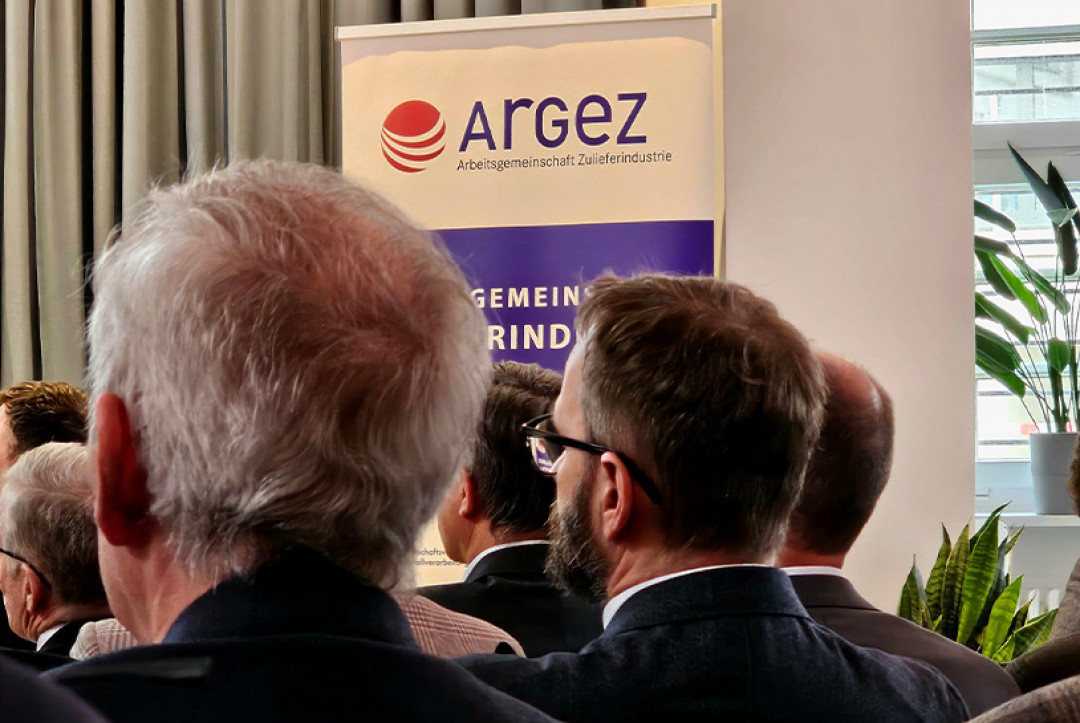
On 30 January, key challenges and opportunities for the German supplier industry were discussed at the ArGeZ Zulieferforum. The motto was ‘Trends, strategies and globalisation in a shrinking market’.
What does the future hold for Germany as a supplier location? This question was explored by the German Arbeitsgemeinschaft Zulieferindustrie (ArGeZ) on 30 January in Berlin. The organisation invited high-calibre guests from the worlds of politics, business and science to discuss "Trends, strategies and globalisation in a shrinking market" - the motto of the event.
Guests from politics and business
Among others, economic policy experts from Berlin took part in the discussion. Guests included Michael Kellner, Parliamentary State Secretary at the Federal Ministry for Economic Affairs and Climate Protection and Federal Government Commissioner for SMEs, Bernd Westphal, MP and economic policy spokesman for the SPD parliamentary group, Steffen Bilger, MP and Deputy Chairman of the CDU/CSU parliamentary group, Dieter Janecek, MP and Federal Government Coordinator for Maritime Economy and Tourism, Alliance 90/The Greens, and Andreas Rade, Managing Director of the German Association of the Automotive Industry (VDA).
The event was rounded off with valuable input from a business perspective and from a think tank specialising in China: Dr Andreas Kufferath, Vice President Engineering Commercial Vehicle Powertrain from Robert Bosch GmbH, Bernd Reitmeier, Managing Director and owner of Startup Factory (Kunshan) Co, Ltd, and Bernhard Bartsch, Head of External Relations at the Mercator Institute for China Studies (MERICS) in Berlin, provided valuable food for thought with their analyses and experiences.
Important findings
The political discussion at the beginning made it clear that there is great interest in a strong supplier industry. In order to make investments in Germany more attractive, lower energy costs, reduced income taxes and less bureaucracy (reporting obligations) are needed. The idea of extending fines for manufacturers was also supported in order not to jeopardise investments in climate-friendly technologies.
Another insight from the event was that a rapid and cost-effective decarbonisation of the transport sector is only possible if all available technologies are used. In addition to batteries, hydrogen engines, fuel cells and synthetic fuels play a decisive role. It is important to take the possible steps quickly and not to slow things down with dogmatic guidelines.
After rapid growth, the Chinese automotive industry is now heading down a path of consolidation. At the same time, Chinese car exports are gaining in importance and foreign manufacturers are coming under increasing competitive pressure. New market investments are more difficult as established suppliers have already built up close relationships with Chinese partners and enjoy market advantages.
Featured photo: ArGeZ

